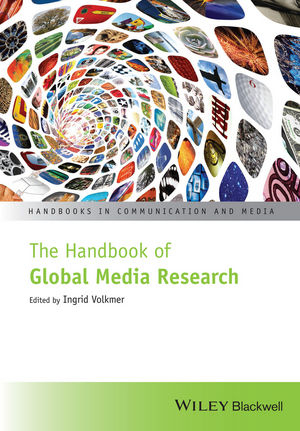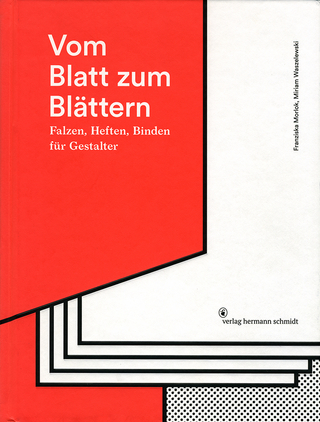
The Handbook of Global Media Research
Wiley-Blackwell (Verlag)
978-1-119-06112-0 (ISBN)
The Handbook of Global Media Research “Ingrid Volkmer has collected an admirably rich, thought-provoking, and diverse collection of views to guide critical scholarship as our topic (‘the media’ and ‘media cultures’), methods (which must now be comparative), and the knowledge we produce are all transformed by globalization”
Sonia Livingstone, author of Media Regulation: Governance and the Interests of Citizens and Consumers
“In this handbook, leading academic and practitioner analysts give us valuable insight into globalized forms of communication, their diversity, the global/local dialectic, and the challenges of critical historical and comparative study of transnational media and communication.”
Robin Mansell, author of Imagining the Internet: Communication, Innovation, and Governance
“With a stellar list of contributors and an engagement with the global that both traces and transcends its boundaries, Ingrid Volkmer’s volume is the cardinal chart of our media worlds.”
Mark Deuze, author of Media Life and Media Works
“This is a long-overdue volume. The distinguished contributors to The Handbook of Global Media Research have produced a challenging and authoritative guide to understanding the latest developments in global media.”
Thomas R. Lindlof, University of Kentucky
As new forms of media proliferate, and communication becomes ever more global, transnational media is increasingly capable of both enhancing political, cultural, and economic globalization and shaping worldviews and civic identity.
Research into the development of transnational media is therefore an essential element of understanding the changes created by advanced globalization. The Handbook of Global Media Research explores and articulates the key themes and competing approaches of this dynamic and developing field. Bringing together the ideas of more than 40 internationally respected authors from around the world, it provides valuable and varied insights into a globalized media landscape, setting the agenda for the future of transnational media and communications research.
Ingrid Volkmer is Associate Professor and Head of the Media and Communications Program at the University of Melbourne, Australia. She has held visiting positions at the LSE, Harvard and MIT. She has widely published in the area of transnational political communication and implications on societies and cultures.
Notes on Contributors viii
Introduction 1
Ingrid Volkmer
Part I History of Transnational Media Research 7
1 Comparative Research and the History of Communication Studies 9
John D.H. Downing
2 Global Media Research and Global Ambitions: The Case of UNESCO 28
Cees J. Hamelink
3 Global Media Research: Can We Know Global Audiences? A View from a BBC Perspective 40
Graham Mytton
Part II Re-conceptualizing Research across Globalized Network Cultures 55
4 Media and Hegemonic Populism: Representing the Rise of the Rest 57
Jan Nederveen Pieterse
5 Digitization and Knowledge Systems of the Powerful and the Powerless 74
Saskia Sassen
6 Media Cultures in a Global Age: A Transcultural Approach to an Expanded Spectrum 92
Nick Couldry and Andreas Hepp
7 Deconstructing the “Methodological Paradox”: Comparative Research between National Centrality and Networked Spaces 110
Ingrid Volkmer
8 Footprints of the Global South: Venesat-1 and RascomQAF/1R as Counter-hegemonic Satellites 123
Lisa Parks
9 Securitization and Legitimacy in Global Media Governance: Spaces, Jurisdictions, and Tensions 143
Katharine Sarikakis
10 Emerging Transnational News Spheres in Global Crisis Reporting: A Research Agenda 156
Maria Hellman and Kristina Riegert
11 The “Global Public Sphere”: A Critical Reappraisal 175
Kai Hafez
Part III Supra- and Sub-national Spheres: Researching Transnational Spaces 193
12 Middle East Media Research: Problems and Approaches 195
Dina Matar and Ehab Bessaiso
13 Media Industries and Policy in Digital Times: A Latin American Perspective of Notes and Methods 212
Rodrigo Gómez García
14 Methodological Pluralism: Interrogating Ethnic Identity and Diaspora Issues in Southeast Asia 227
Umi Khattab
15 “Citizen Access to Information”: Capturing the Evidence across Zambia, Ghana, and Kenya 245
Gerry Power, Samia Khatun, and Klara Debeljak
16 India and a New Cartography of Global Communication 276
Daya Kishan Thussu
17 What Is Governance? Citizens’ Perspectives on Governance in Sierra Leone and Tanzania 289
Vipul Khosla and Kavita Abraham Dowsing
18 Forced Migrants, New Media Practices, and the Creation of Locality 312
Saskia Witteborn
Part IV Identifying Spheres of Comparison in Globalized Contexts 331
19 Researching the News Agencies 333
Oliver Boyd-Barrett
20 Global Internets: Media Research in the New World 352
Gerard Goggin
21 Media, Diaspora, and the Transnational Context: Cosmopolitanizing Cross-National Comparative Research? 365
Myria Georgiou
22 Post-colonial Interventions on Media, Audiences, and National Politics 381
Ramaswami Harindranath
23 Media Research and Satellite Cultures: Comparative Research among Arab Communities in Europe 397
Christina Slade and Ingrid Volkmer
24 Stardust in the Audience’s Eyes: Weddings as Media Events in Visual Media and the Construction of Gender 411
Eva Flicker
Part V Comparative Research and Contexts of Challenges 433
25 Lost, Found, and Made: Qualitative Data in the Study of Three-Step Flows of Communication 435
Klaus Bruhn Jensen
26 Finding Yourself in the Past, the Present, the Local, and the Global: Potentialities of Mediated Cosmopolitanism as a Research Methodology 451
Ruth Teer-Tomaselli and Lauren Dyll-Myklebust
27 Europe: A Laboratory for Comparative Communication Research 470
Claes H. de Vreese and Rens Vliegenthart
28 The Global–Local in News Production Tales from the Field in the “Shoes” of Journalists 485
Lisbeth Clausen
29 “Africa Talks Climate”: Comparing Audience Understandings of Climate Change in Ten African Countries 504
Anna Godfrey, Miriam Burton, and Emily LeRoux-Rutledge
30 Organizing and Managing Comparative Research Projects across Nations: Models and Challenges of Coordinated Collaboration 521
Frank Esser and Thomas Hanitzsch
31 Benefits and Pitfalls of Comparative Research on News: Production, Content, and Audiences 533
Akiba A. Cohen
Index 547
| Reihe/Serie | Handbooks in Communication and Media |
|---|---|
| Verlagsort | Hoboken |
| Sprache | englisch |
| Maße | 173 x 246 mm |
| Gewicht | 880 g |
| Themenwelt | Sozialwissenschaften ► Kommunikation / Medien ► Allgemeines / Lexika |
| Sozialwissenschaften ► Kommunikation / Medien ► Kommunikationswissenschaft | |
| Sozialwissenschaften ► Kommunikation / Medien ► Medienwissenschaft | |
| Sozialwissenschaften ► Soziologie | |
| ISBN-10 | 1-119-06112-1 / 1119061121 |
| ISBN-13 | 978-1-119-06112-0 / 9781119061120 |
| Zustand | Neuware |
| Informationen gemäß Produktsicherheitsverordnung (GPSR) | |
| Haben Sie eine Frage zum Produkt? |
aus dem Bereich


